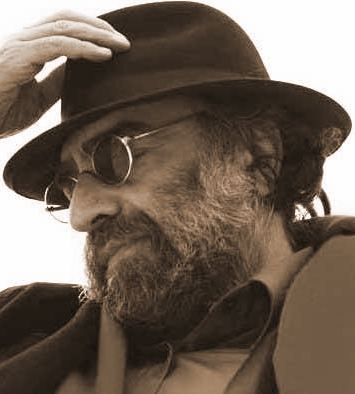|
|
| Kimiai, Masoud
 |
Date of birth
31 July 1941, Tehran, Iran
Mini biography
Director | Producer | Writer | Editor
Massoud Kimiai (July 31st, 1941, Tehran, Iran)
Massoud Kimiai was born in Tehran in 1941. He became well known when in 1969 directed his second film, Gheisar, which was considered a turning point in the Iranian cinema.
He depicted the ethics and morals of the romanticised poor working class of the Ganj-e-Qarun (1965) genre through his main protagonist, the titular Gheisar.
But Kimiai's film generated another genre in Iranian popular cinema: the tragic action drama.
Without any academic training in cinema or theater, and with only a few years of experience as assistant director, Kimiai became a historical figure in the Iranian cinema. He learned film making from the movies, and of his early days of contact with the cinema.
“No film can beg or plead for its immortality. The power should come from within the work.”
He recalls how he used to spend hours outside the movie theaters of Tehran, listening to the sound track of the films blaring from the defective loudspeakers fixed outside the cinema, and trying to visualize the action with the help of oral synopsis furnished by friends who had seen the movie.
His other lively memory from his childhood is the scene of battle between Rostam and Ashkbous (heroes of Ferdowsi's Book of Kings) painted on the back of the cart in which his father carried flour for bakeries.
When the cart was in motion, the combatants seemed animated to the young Massoud who habitually walked behind the cart and tried to guess the end of the battle.
Kimiai had difficult childhood. He was restless and often got into fights which at times ended in the police station.
Then came the period when Kimiai directed his energies to the books. He read voraciously, specially books on cinema.
That was followed by frequent visits to film studios in search of a job, until he met film director Samuel Khachikian, from whom he learned the first lessons in the techniques of film making, and began his film career in 1965 as Khachikian's assistant.
But he was too young to be allowed independent work, and for some time he had to be content with preparing publicity materials for American films.
When he first proposed a screenplay on which to make a film, the head of studio wouldn't believe Kimiaei could make a film until the ambitious young man made a one minute scene form his screenplay and that convinced the studio bosses that he could make professionally acceptable films.
Kimiai's works:
Come Stranger | Biganeh Biya, 1968
Qeysar | Gheisar, 1969
Reza Motori | Reza Motorcyclist, 1970
Dash Akol, 1971
Khaak | The Soil, 1973
Baluch, 1972
Gavaznha | The Deer, 1974
The Horse (short film)
The Oriental Boy (short film), 1974
Ghazal, 1976
Safar-e Sang | The Journey of the Stone, 1978
Khat-e Ghermez | Red Line, Censored, 1982
Tigh-o Abrisham | The Blade and the Silk, 1987
Sorb | The Lead, 1988
Dandan-e Maar | Snake Fang, 1990
Goroohban | The Sergeant, 1991
Rad-e Paye Gorg | The Wolf's Trail, 1992
Fist, 1995
Tejarat | Trade, 1995
Ziyafat | The Feast, 1996
Soltan, 1996
Mercedes, 1998
Faryaad | Cry, 1999
Eteraz | Protest, 2002
Sarbazan-e Jomeh | Future Soldiers, 2004
The Command, 2005
The Boss, 2006
Trial on the Street, 2009
Crime, 2011
Qeysar 40 years later (Documentary), 2011
Metropole, 2014
Domestic Killer, 2016
Blood done, 2019
Reverse, 2019
There Was Blood, 2020
Killing a Traitor, 2022
Director - Selected filmography
-
Verdict | Hokm (2005)
-
Friday's Soldiers | Sarbaz-haye jome (2004)
-
Protest | Eteraz (2000)
-
The Cry | Faryaad (1999)
-
Mercedes (1998)
-
The Wolf's Trail - Radd-e pay-e gorg (1994)
-
Snake's Fang | Dandan-e-mar (1990)
-
The Lead | Sorb (1988)
-
The Blade and The Silk | Tigh va Abrisham (1986)
-
The Red Line | Khatte ghermez (1982)
-
Journey of the Stone | Safar-e sang (1979)
-
The Deer | Gavaznha (1976)
-
Ghazal (1975)
-
Pesar-e sharghi | Oriental Boy (1975)
-
Soil | Khaak (1973)
-
Baluch (1972)
-
Dash Akol (1971)
-
Reza, the Motorcyclist | Reza Motori (1970)
-
Gheisar | Qaysar (1969)
-
Come stranger | Bigane biya (1968)
|
|
|
| Choose an item to go there!
|
|

